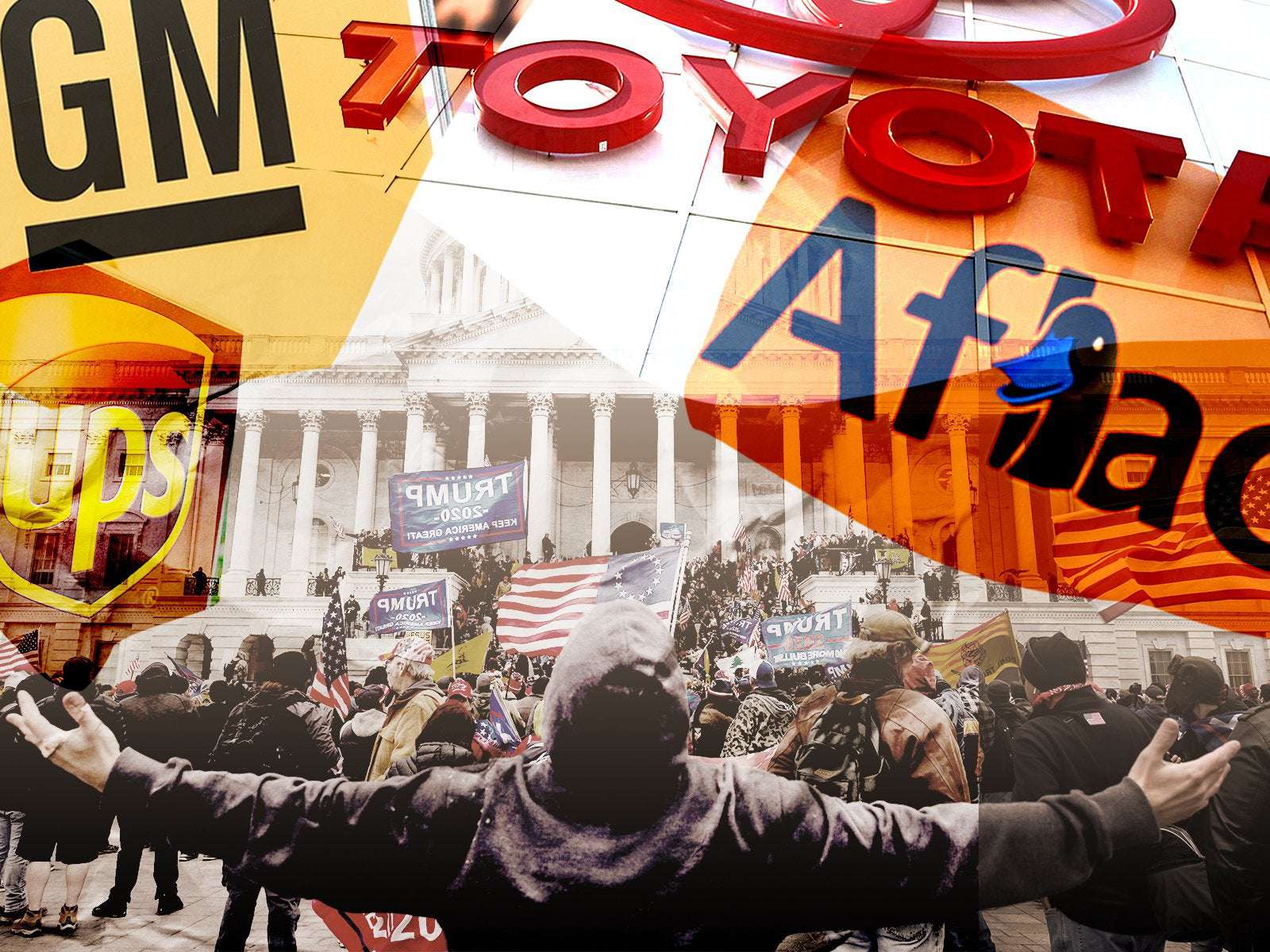Following the January 6 insurrection, a number of private companies declared that they would not give political contributions to politicians who had sought to overturn the election. It was a signal moment. And what has happened to these pledges since then is instructive.
Consider Toyota. In January Toyota pledged not to support the Sedition Caucus. But then The DC-based government watchdog Citizens for Responsibility and Ethics in Washington discovered that Toyota had quietly reversed course and started giving to anti-democratic politicians again. Then, on July 8, the Lincoln Project produced a video highlighting the company’s turnaround. At which point Toyota flipped again. On July 9, announcing that it would halt its renewed giving.
It was a good example of the disinfecting power of sunlight.
According to Popular Information, some 35 major corporations have honored their January promises to cut off financial support to the 147 Republican certification objectors. Those companies include Airbnb, Google, Amazon, American Express, CBS, Cisco, eBay, Lyft, Microsoft, Nike, Sony Music Group, Walt Disney, Warner Music Group and Zillow.
But not every company has behaved so honorably.
The June 30 Federal Election Commission’s campaign contribution disclosures show that since April, major American companies have not stuck with their January pledges and have returned to supporting the Sedition Caucus.
Six of the household names are General Motors, Ford, UPS, Aflac, and Abbott and Merck, the mega-pharmaceutical companies. Each of the six said in January that they would suspend their political giving to Republican officials who voted not to certify the 2020 presidential election.
For example, GM has given $15,000 to House Republican Minority Leader Kevin McCarthy and his PAC, the McCarthy Victory Fund. GM also contributed $25,000 to the Leadership PAC of McCarthy’s lieutenant, Steve Scalise.
Podcast · July 29 2021 Tim Miller: Hot Takes From the Beach On today's podcast, Tim Miller takes a break from vacation to talk with host Charlie Sykes about the infrastructure deal...
In addition, GM gave $1,000 to Congressman Bill Johnson (R-Ohio). The company has facilities in Ohio, and money helps cement political relationships in case government help is needed in the state.
On June 30, Ford reported giving $2,500 to Congressman Tom Rice (R-S.C.). The company has a plant in South Carolina. And Rep. Rice sits on the House Ways and Means Committee, which writes the tax laws.
UPS has recently given $25,000 to Minority Leader’s McCarthy’s campaign and his Victory PAC and $2,500 to election objector Congressman Byron Donalds (R-Fla.). Donalds serves on the House Committee on Oversight and Reform which has before it a bill to reform UPS’ competitor, the U.S. Postal Service.
Aflac, the insurance conglomerate, gave $2,500 to Rep. Barry Loudermilk (R-Ga.), a member of the House Financial Services Committee. Which has jurisdiction over insurance companies.
Merck, which ranks 65th on the Fortune 500, contributed $5,000 to McCarthy and another $5,000 to Scalise’s PAC, as well as $1,500 to Rep. Lloyd Smucker (R-Penn.). Smucker, like Tom Rice, sits on the tax-bill writing House Ways and Means Committee.
It seems plain why these companies have broken their pledge and resumed giving to Republicans who voted against the certification of the 2020 election. Some corporate leaders think everything in America has gone back to normal and since both corporate executives and lawmakers understand Congress’ power to regulate commerce, the financial backscratching serves both sides’ interests.
The counterweight lies in Americans flexing their muscle by shifting purchases to rival companies. Once light was aimed at Toyota’s conduct, the company’s quick return to pro-democracy behavior told us what any company knows. It cannot afford bad publicity because ultimately, its bread is buttered by consumers.
That is the leverage held by every citizen. If we want to keep the Republic, we will have to exercise that power

prahs17 on July 29th, 2021 at 16:32 UTC »
1) General Motors 2) Ford 3) UPS 4) Aflac 5) Abbott 6) Merck
thingsorfreedom on July 29th, 2021 at 14:18 UTC »
General Motors, Ford, UPS, Aflac
All easy to avoid doing business with forever.
The other two, Merck and Abbott, less so but $ spent benefitting them would be very little anyway.
-Anti-fascist on July 29th, 2021 at 13:37 UTC »
Boycott them.